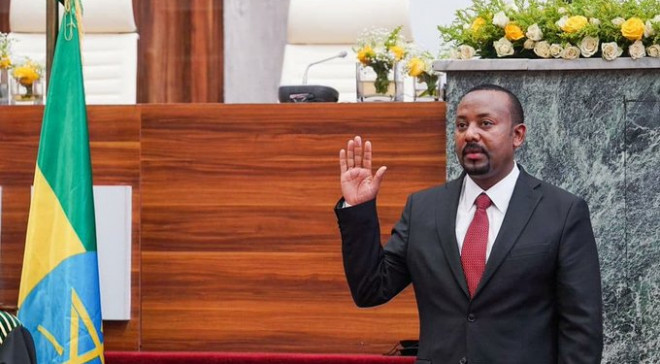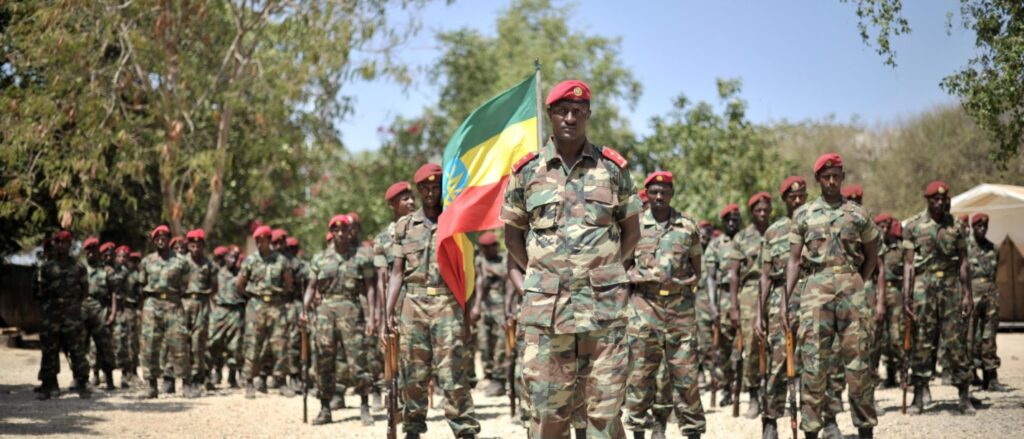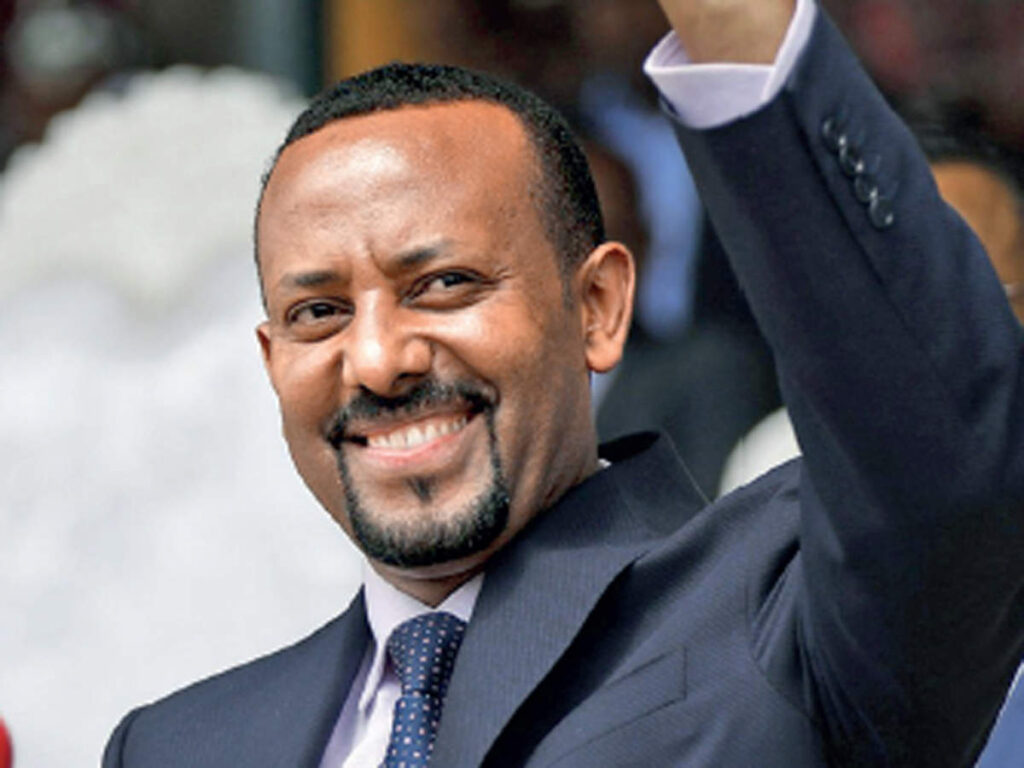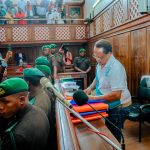
Ethiopia’s Prime Minister Abiy Ahmed was on Monday sworn in by Supreme Court Chief Justice Meaza Ashenafi, for a second five-year term. His swearing in comes days after his government decided to expel Seven U.N officials over what it termed as “meddling” with the country’s affairs; more than this, his new term begins as the country continues to grapple with a nearly year-long war in Northern Tigray region.
“I, Abiy Ahmed Ali, today in the House of People’s Representatives, accept the appointment as prime minister, as I pledge to undertake responsibly and with faith to the constitution, the responsibility placed upon me by the people,” he said while being sworn in by Supreme Court Chief Justice Meaza Ashenafi.
The ceremony that was held in the country’s parliament comes after his Prosperity Party won a landslide victory in June’s parliamentary elections; the vote, which was boycotted by some parties, took place against the backdrop of the conflict in the north. Some opposition parties, notably in Abiy’s native Oromia region, opted to boycott voting, complaining that their candidates had been arrested and their offices vandalized.
No voting occurred in Tigray, and races for 83 other federal parliamentary seats had to be delayed because of security or logistical issues. Later, authorities held elections for 47 of those seats, in the Somali, Harari and Southern Nations, Nationalities and Peoples’ (SNNP) regions; those results were seen to have little significant bearing on the balance of power in parliament. Despite the boycotts the vote was also described by some outside electoral observers as better run than those in the past.

As Abiy takes on another term, the war between Federal Forces and the Tigrayan People’s Liberation Front (TPLF) in the country’s north is said to be weakening Ethiopia’s economy which was once seen as Africa’s fastest-growing; more than this, is that the war is seen to be threatening to isolate a man who has in the past been seen as a regional peacemaker. From contention over Ethiopia’s decision to go ahead with the operations of its mega Dam, to last week’s move by the country to expel seven senior U.N officials, Abiy appears to have an even bigger task ahead of proving himself as a progressive leader for his nation and the continent.

Ethiopia’s government has since last week faced condemnation from the United Nations, United States and several European nations after it expelled the seven U.N. officials it accused of supporting the Tigray forces who have been battling Ethiopian and allied forces, claims for which it is yet to provide evidence. The seven officials reportedly left the country Sunday.
The U.N has over time made claims that food aid was being barred from the access of those in need of it in the north, leaving many at the risk of going hungry. Since last November, fighting in Northern Tigray Region has spread to neighboring Afar and Amhara regions while Tigray has fallen under what the U.N describes as a de facto humanitarian blockade, spurring fears of the mass starvation that turned Ethiopia into a perfect example for famine in the 1980s. Abiy’s office which blames the rebels for starting the war with attacks on federal army camps, says certain conciliatory measures like declassifying the TPLF as a terrorist group, can only happen after a new government is formed. Abiy was appointed after several years of anti-government protests against the ruling TPLF-led coalition, he promised to break Ethiopia’s authoritarian past, in part by holding the most democratic polls the country had ever seen.
The coalition, of which Abiy was a member, had claimed overwhelming majorities in the two previous elections, which observers said fell far short of international standards for fairness. He came to power in 2018 after being nominated by the ruling coalition following years of anti-government protests; at the time, he was a little-known but would later win the hearts of millions with his reform measures.

Even as he is expected to form a new government, the 2019 Nobel Peace Prize winner who was awarded for restoring ties with neighboring Eritrea and for pursuing sweeping political reforms, is facing a major challenge, that of fierce war in the Tigray region. The war is fast spreading into other parts of the country, deadly ethnic violence on the other hand is growing, and watchdogs warn that repressive government practices may return. It is unclear whether Abiy’s swearing-in will alter the course of the war, pitting government forces against the Tigray People’s Liberation Front (TPLF) rebel group, which dominated national politics before he took power.
Finding a solution to the deadly war in the north, will be Abiy’s yet greatest challenge in his new term as Prime Minister.






